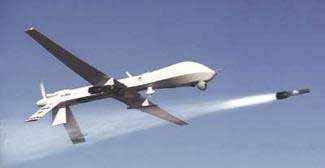Why China would benefit from resolving the North Korean Conundrum
“The Central Committee of the Workers’ Party of North Korea has commanded its people to actively confront China with a ‘nuclear storm’”. For a country in constant dire straits and entirely dependent on the charity of its massive neighbour, such a statement would seem odd, even for an extremely authoritarian regime.
Nevertheless, China and North Korea are not allies, which is a fact that has been acknowledged on both sides of the pacific. The question remains as to how supportive is China of North Korea, and will China’s assertive response to Pyongyang’s nuclear test usher in a new chapter in Sino-North Korean relations?
In the past, China has been the protector of North Korea – Chinese intervention during the Korean War saved the regime from annihilation. The two were connected by a common political ideology and a shared fear of US activity during the Cold War. China provided political and material support to North Korea, which acted as gatekeeper and buffer against US forces stationed in South Korea.
China, however, is no longer in need of a gatekeeper. The country’s military prowess is more than capable of deterring military incursion, and the power China derives from its critical, interconnected role in the global economy mandates that it maintain constructive cordial relations with the rest of the world.
Moreover, the fraternity of communist ideology is no longer relevant. China has moved on and North Korea has further isolated itself with its belligerent rhetoric. Whereas China has reconnected with the rest of the world as a partner, North Korea’s situation has become more unstable, isolated, and desperate. Pyongyang’s foreign policy has been limited to threatening military action and nuclear sabre-rattling. The diverging paths and North Korea’s instability is why Beijing can no longer view North Korea as an ally or a friend, but rather as a hazardous opportunity.
More of a liability than an asset
Beijing certainly has reason to be concerned. The potential fallout from a collapse of government or an internal power struggle would likely spread beyond the country’s borders. If even a fraction of North Korea’s approximately 25 million people were to seek refuge in China, the logistics of managing the problem would be costly. Imagine if war-torn Syria was Germany’s next door neighbour and then Beijing’s concerns seem reasonable.
Residents in China’s north-eastern provinces have also been pressuring the central government to manage the situation. North Korea’s hydrogen bomb test in January caused tremors that were felt by residents near the border, stoking fears of radiated particles blowing over the border. Chinese media reports also point to problems with periodic occurrences of thefts and murders committed by North Koreas venturing over the border. The Chinese public’s sentiment for North Korea has transitioned from brotherhood, to sympathy, and progressively more to concern.
Necessary engagement
In spite of all the risks and drama, China has continued to develop economic ties with North Korea, including access to Chinese ports, plans for a high-speed rail line to the border, and social aid programs. These initiatives have more to do with China’s national interest than interstate friendship.
Given that North Korea’s attempts to be self-sufficient have failed miserably, resulting in famine and death, China’s support is essentially keeping the pariah nations head above water. This has had the positive effect of ensuring that Pyongyang’s sabre rattling is more a cry for attention rather than a desperate last gasp.
By trying to develop North Korea’s economy, China is also increasing its leverage and influence. Aid can come from any country or organization, but the market access and economic cooperation that China provides affords it an unrivalled influence within Pyongyang. While this influence has taken a hit after the 2013 execution of Jang Song-Taek, Kim Jong-un’s uncle, who was a in charge of managing affairs with China, the fact remains that China has the most levers to pull.
The Bigger Picture
Beyond managing risks, China’s clout with North Korea presents an opportunity to further its control of regional influence and security. As long as the peninsula remains divided and unstable, America’s presence in the region as a guarantor for South Korea will continue. While direct conflict with the U.S. is unlikely, the presence of U.S. forces so close to China complicates mastery of its own backyard.
This situation is best illustrated by recent attempts by the South Korean and U.S. governments to place a THAAD missile defence system in South Korea, the range of which would cover much of North East China, undermining the country’s military’s missile assets. Beijing’s attempts to dissuade Seoul were strongly rebuffed, with South Korea citing that the threat from North Korea trumped China’s own security concerns. Remove the threat of North Korea and the justification for American military assets in South Korea melts away.
Master of the Korean Peninsula
On the question of unification, China holds all the cards. Having already established economic ties and infrastructure in North Korea, and being South Korea’s largest trading partner, China is best positioned to play a leading role if or when the process ever begins. South Korea would likely place greater emphasis on its relations with China, with the U.S. being relegated to a counterbalancing role only when needed.
China’s disposition towards North Korea may have changed in light of recent events. Chinese condemnation of the weapons tests and support for tighter sanctions should not be seen as falling in line with the international community, but rather, as pulling the levers it has built over time to move the regional situation in its favour.
Photo: North Korea — Pyongyang, Arirang by (stephan)




